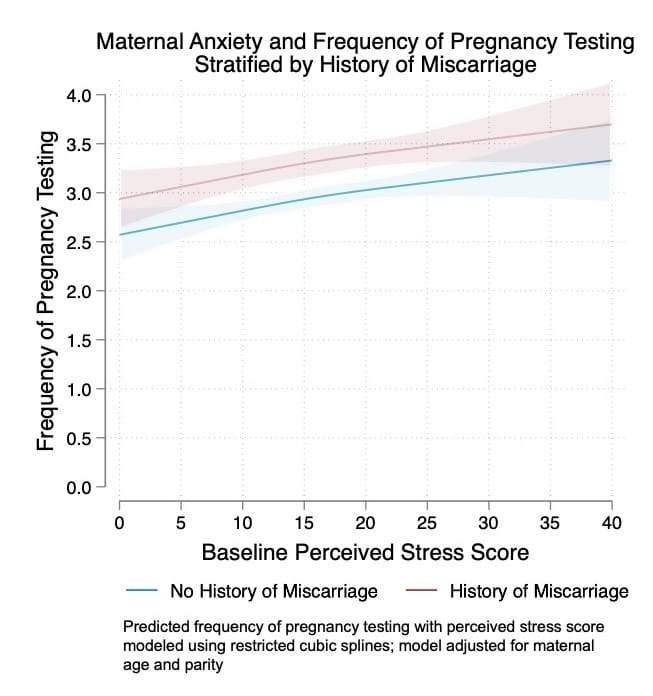Women’s Health
Mental Health and Home Pregnancy Testing Behavior Alexandra Sundermann* Alexandra Sundermann Kenneth J. Rothman Lauren A. Wise
Mental health is integral to pregnancy health, yet little is known about its effect on pregnancy testing behavior among those trying to conceive. In PRESTO (Pregnancy Study Online, 2018–2024), a prospective cohort of individuals planning a pregnancy, participants provided information about mental health and day-specific use of a home pregnancy test, including test results from four days before expected start of menstruation through four days after. We analyzed data from 20,458 pregnancy tests across 6,569 participants. Thirty-two percent of participants reported an anxiety diagnosis and 27% reported a depression diagnosis; 16% of participants reported a diagnosis of both anxiety and depression. Testing was categorized as infrequent (1 test, 34%), moderate (2-3 tests, 35%), or frequent (≥4 tests, 31%). Behavior was further characterized by timing of first test as very early (≥4 days before expected period, 41%), early (1-3 days before expected period, 33%), or expected/late (day of expected period or later, 26%). We use log-binomial regression models to estimate risk ratios and 95% confidence intervals [CI], with adjustment for age, parity, and history of miscarriage. Participants with anxiety were more likely to be very early and frequent testers (adjusted risk ratio [aRR] 1.31, 95% CI 1.20, 1.43). When accounting for a concurrent depression diagnosis, participants with anxiety alone were most likely to be very early and frequent testers (aRR 1.37, 95% CI 1.18, 1.58) compared with participants with anxiety and depression (aRR 1.17, 95% CI 0.99, 1.38) or depression alone (aRR 1.16, 95% CI 0.97 1.41). Higher baseline perceived stress scores were associated with increased pregnancy testing frequency (Figure). Home testing is one of the first modifiable behaviors of pregnancy, and individuals with anxiety tend to test earlier and more frequently than those without.

